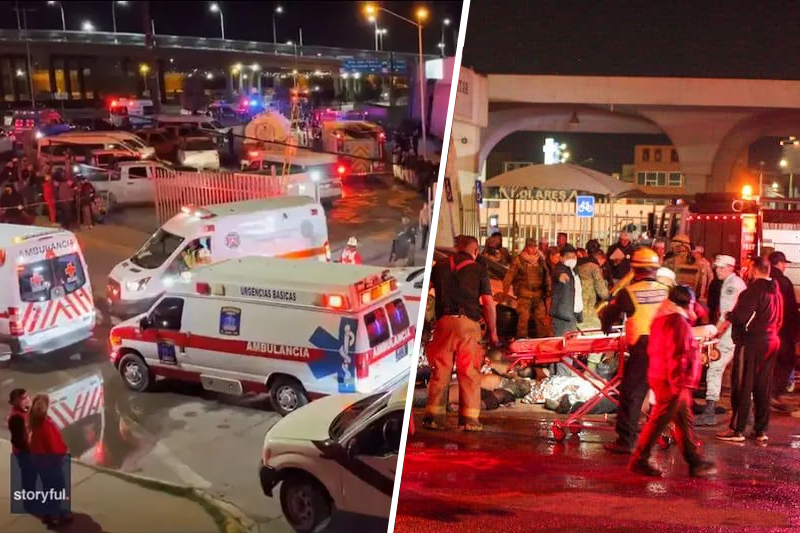
At least 40 killed in massive fire at Mexican migrant centre
A deadly fire that officials say started during a protest against deportations at a migrant processing centre in Mexico has killed at least 40 people, while some 29 were also injured. Roughly 68 men from Central and South America trying to get to the US were inside the centre in Ciudad Juárez – run by Mexico’s National Migration Institute (INM) – when the blaze happened.
Mexican President Andres Manuel Lopez Obrador said a number of migrants in the facility had set mattresses on fire, adding “they didn’t think that would cause this terrible tragedy.” Photos from the scene showed dozens of body bags lined up on the pavement outside.
The fire broke out shortly before 22:00 local time on Monday. In recent weeks, the city has seen a noteworthy influx of people, with many heading to the US border in expectation of an end to a controversial Trump-era policy, Title 42.
US President Joe Biden has revealed his intention to end the use of the pandemic-era policy, which allows US border officials to prevent individuals from entering the country in order to avoid the spread of communicable diseases.
Keep Reading
Since the announcement, the number of migrants in the Mexican city of Ciudad Juárez – located across the Rio Grande river from El Paso, Texas – awaiting the potential lifting of the restrictions has increased exponentially.
In connection with the latest incident, a statement from US Customs and Border Protection read they were prepared to receive and process those who were injured and are being transported via ambulance from Mexican to US medical facilities.
While Mexican authorities said people from Ecuador, El Salvador, Columbia, Honduras, Venezuela, and Guatemala were among the dead and injured, Guatemalan Foreign Minister Mario Bucaro told reporters at least 28 citizens of the country were killed in the fire.
UN Secretary-General Antonio Guterres has demanded a “thorough investigation”, while the US ambassador to Mexico, Ken Salazar, said the tragedy underscored the risks of irregular migration and the importance of fixing a broken migration system.




